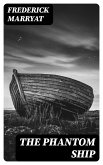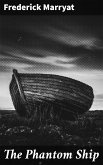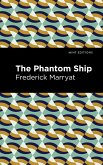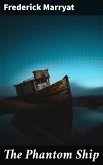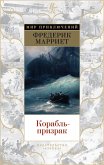In "The Phantom Ship," Frederick Marryat crafts a captivating maritime tale infused with elements of the supernatural and adventure. Set in the tumultuous waters of the North Sea, the narrative revolves around the eerie ship known as the "Flying Dutchman," which serves as a metaphor for doomed ambition and spectral regrets. Marryat's vivid prose, rich in nautical detail and infused with Gothic undertones, reflects the Romantic literary context of his time, where the allure of the sea intertwined with themes of fate and the unknown. The novel skillfully blends thrilling action with introspective moments, drawing readers into a world where the line between reality and the supernatural becomes increasingly blurred. Frederick Marryat, a former naval officer and one of the pioneers of the sea novel, drew heavily from his extensive maritime experiences. His firsthand knowledge of naval life and its challenges permeates this narrative, providing authenticity to the shipboard settings and characters. Notably, Marryat's interactions with the sea and his interest in folklore likely influenced his portrayal of ghostly legends, making this narrative a reflection of both personal experience and broader societal fears of the era. Readers who revel in tales of adventure, the sea, and the supernatural will find "The Phantom Ship" an enthralling exploration of human ambition and the haunting specters of the past. Marryat's deft storytelling invites both maritime enthusiasts and lovers of Gothic literature to embark on this memorable voyage, promising an experience that resonates long after the final page is turned.
Dieser Download kann aus rechtlichen Gründen nur mit Rechnungsadresse in A, B, BG, CY, CZ, D, DK, EW, E, FIN, F, GR, H, IRL, I, LT, L, LR, M, NL, PL, P, R, S, SLO, SK ausgeliefert werden.



